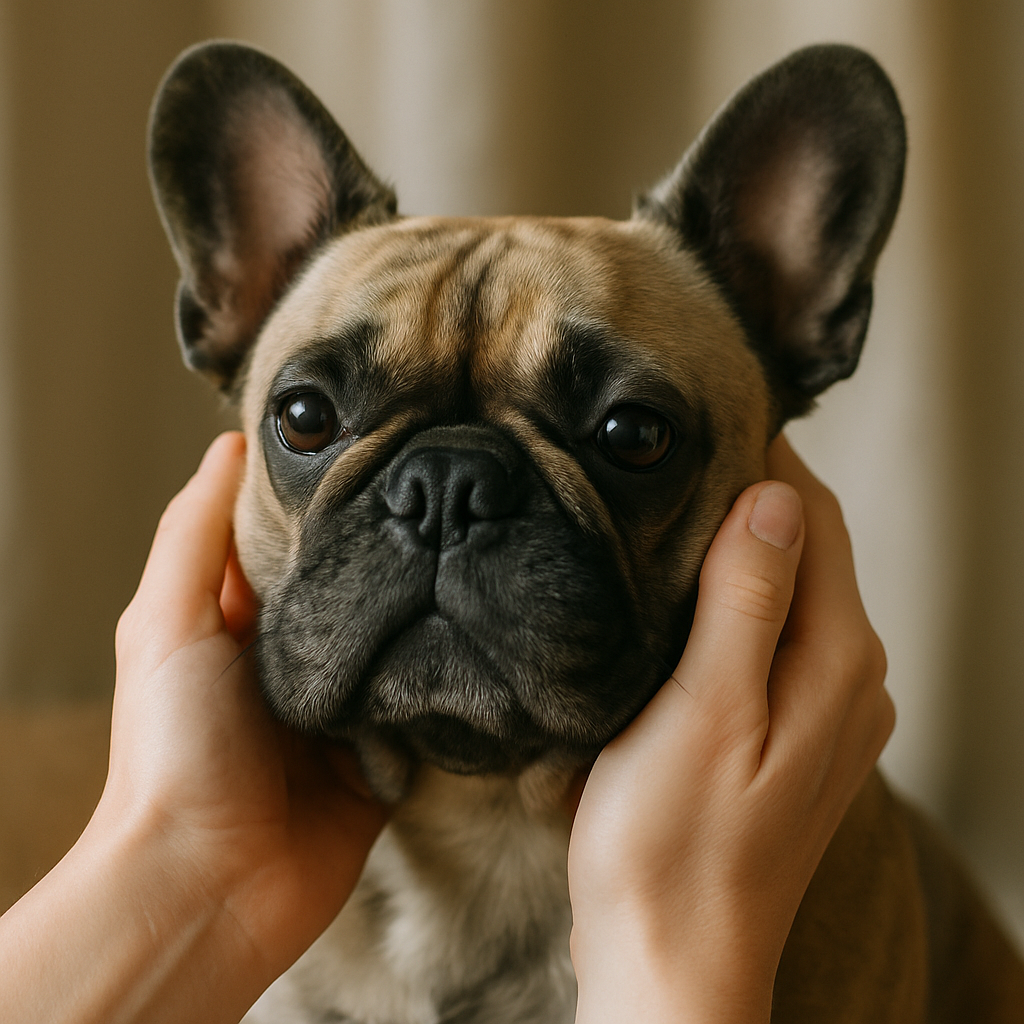Caring for Flat-Faced Dogs (Brachycephalic Breeds): A Health Guide
Share
French Bulldogs, Pugs, English Bulldogs, and other brachycephalic (or "flat-faced") breeds have captured our hearts with their charming, expressive faces. However, their unique anatomy, specifically their shortened skulls, comes with a set of significant health challenges that every owner must understand and manage proactively. Providing special care is not just recommended—it's essential for their well-being.

Understanding the Key Health Risks
The adorable features of these breeds are, unfortunately, linked to serious health concerns.
- Brachycephalic Obstructive Airway Syndrome (BOAS): This is the most common and serious issue. Their compressed anatomy includes narrowed nostrils, an elongated soft palate, and a slender trachea, all of which obstruct airflow. This leads to the characteristic snorting, snoring, and noisy breathing, but it can also cause gagging, exercise intolerance, and collapse in severe cases.
- Heat Intolerance: Because of their compromised airways, these dogs cannot pant effectively to cool themselves down. This puts them at an extremely high risk for overheating and life-threatening heatstroke, even in mild weather or with minimal exertion.
- Skin Fold Dermatitis: The deep wrinkles on their faces can trap moisture and debris, creating a perfect breeding ground for bacteria and yeast. This often leads to painful skin infections (pyoderma) if not cleaned daily.
- Eye Problems: Their shallow eye sockets cause their eyes to bulge, making them susceptible to injuries, ulcers, and a condition called proptosis (where the eyeball pops out). Dry eye is also very common.
- Dental Issues: Their shortened jaw doesn't have enough room for all their teeth, leading to overcrowding, misalignment, and a higher risk of severe dental disease.
Essential Care for Your Flat-Faced Friend
Managing these risks requires vigilance and a specific care routine.
- Use a Harness, Never a Collar: A collar puts pressure on the trachea, further restricting an already compromised airway. A harness is a non-negotiable safety tool.
- Control Their Climate: Brachycephalic breeds are not outdoor dogs. They must live in a climate-controlled home with air conditioning. Even a short time in a hot car can be fatal.
- Manage Exercise Carefully: Opt for short, gentle walks during the coolest parts of the day (early morning or late evening). Avoid strenuous activity, especially in warm or humid weather.
- Practice Daily Grooming: Clean and dry their facial folds every single day with a vet-approved wipe to prevent infections.
- Maintain a Healthy Weight: Obesity dramatically worsens breathing difficulties. Work with your vet to keep your dog at a lean, healthy weight through a controlled diet.
- Schedule Regular Vet Check-ups: Your vet is your best partner in managing your pet's health. They may recommend corrective surgeries (like widening the nostrils or shortening the soft palate) to significantly improve breathing and quality of life.
Owning a brachycephalic breed is a rewarding experience, but it comes with a profound responsibility to provide the specialized care they need to live a happy, comfortable life.
